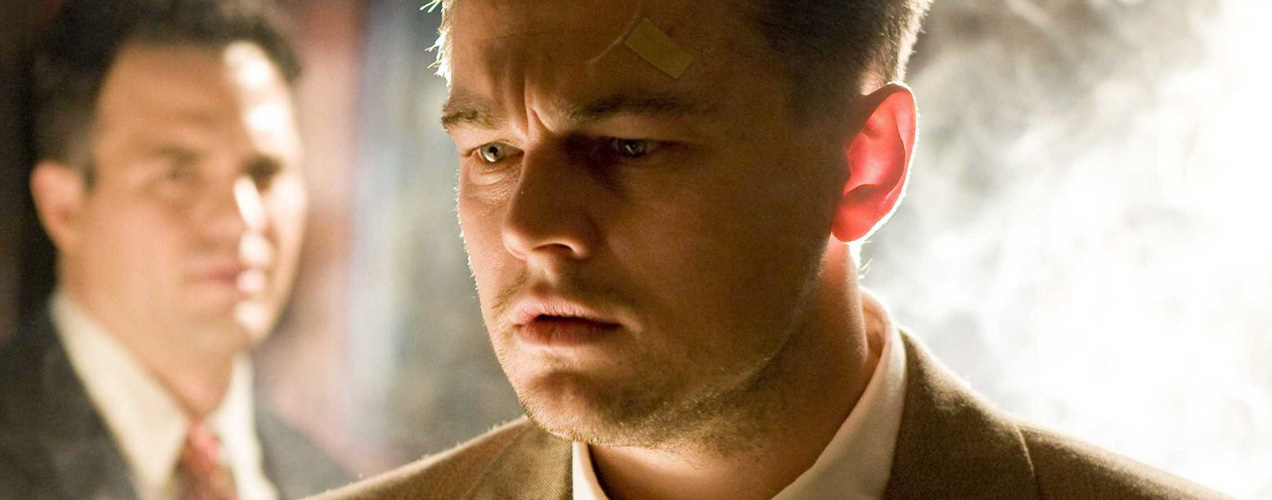2010 / Martin Scorsese > Something happened to Scorsese between Goodfellas and Casino. He stopped demanding more of the viewer, started catering to a lower common denominator and/or became too complacent with his storytelling. For a film to work, the technicals need to match the fundamentals and aesthetics. They don’t always need to be in equal parts, but if one fails, the others get dragged down hard. In the case of Shutter Island, a darkly beauteous approach to classic Hitchcock horror, the director of Taxi Driver becomes satisfied with an ending that’s not only predictable but has become almost expected in this day and age. It takes a lot more than a question of morality and human conscience that surrounds the finale to quench the thirst for a good film.
Category Archives: 3.0
Avatar
2009 / James Cameron > From a historical perspective, the positives for Avatar far outweigh the negatives. Cameron’s technology is incredible: Often during action sequences, I was wondering if the make-up would come off in the heat, only to realize that, no, this wasn’t make-up, that this was a new generation of CGI that would change the way we create and experience movies for the the next decade. Throw in the vibrant, imaginary setting of Pandora and you have a world ripe for the picking. But then comes the story, the characters and the barrage of cliches. One could argue that a tried and true story can be made better with refinement, but I’ll argue that even in that, this film fails. The writing is tragically bad at times (“I see you!”), and the supporting players are ridiculous caricatures. If in doubt, seek no further than the element of interest in the film: Unobtainium. If that doesn’t give away to the fact that someone, somewhere down the line forgot to do some quality checking on the script, I’m not sure what will.
The trick with Avatar, though, is this: I’m grateful for it. Some consider The Abyss to be the test vehicle for Terminator 2, and that to be a test vehicle for this. But given its lack of maturation in the storytelling department, I can’t tell you how excited I am to see what Cameron does with his upcoming Battle Angel. Technology allows filmmakers to provide instant gratification to viewers. But you need a story for a film to be memorable, for it to age well. The Matrix is shockingly corny now, and I have little doubt that Avatar will also fail to hold up in the annals of time, box office receipts be damned. Its legacy, however, will be carried forth by the technology and all the cinema that will be founded on it.
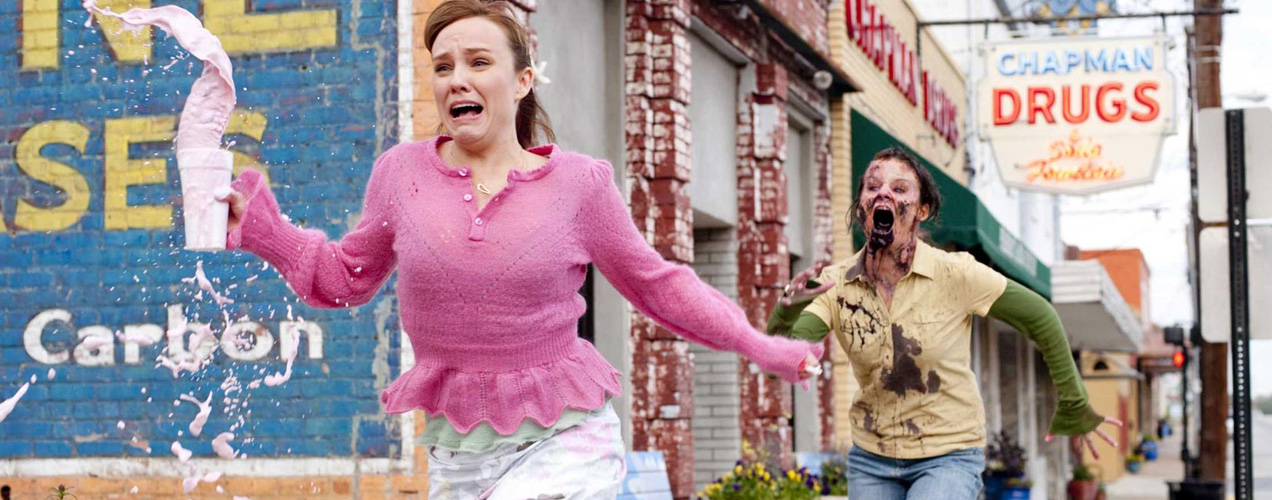
Zombieland
2009 / Ruben Fleischer > Two things in short: Yes, it’s fun to watch, and the cameo is absolutely fantastic. The best in movies since Tropic Thunder. And no, it’s not as good as Shaun of the Dead. That film was ingenious, blending the zombie genre with a type of self-heckling comedy that created something memorable. Instead, Zombieland holds the handrails a bit too close, never really flourishing beyond a louder version of what’s already been done. For that, it maintains its own ground though never matching the charm of Simon Pegg’s vehicle.
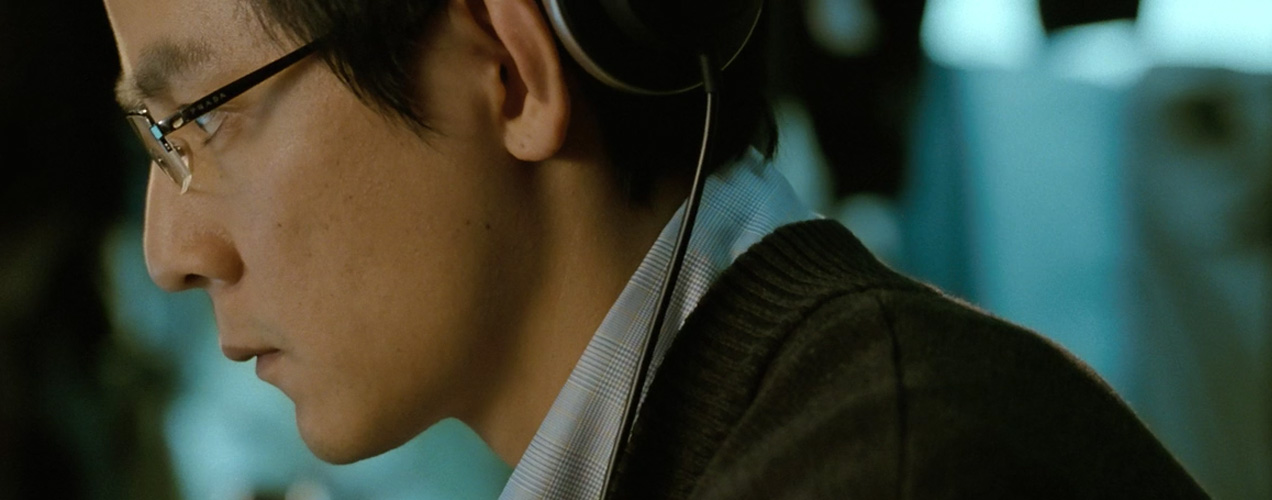
Overheard
2009 / Felix Chong & Alan Mark > Every Hong Kong filmmaker now has to take into effect mainland China’s demands for the righteousness of mankind, whether it be the clutches of morality or the dearest of cultural sensitivities. If they didn’t, the single largest portion of their box office receipts go out the door. And because of that, we’re back to adjusting for the 21st century’s version of the Hays Code all over again. Earlier this year, the guys behind Infernal Affairs (i.e., the basis for The Departed) released Lady Cop & Papa Crook after a six month delay because of disagreements with the Chinese censors. Critics bashed it. Lesson learned: If the bad guys can’t win, make sure somehow everyone loses. In Overheard, Chong and Mak make sure that they can utilize this technique into fitting their vision into China’s demands.
The problem is this, however: The tone of the film never becomes concrete. Thematically, we don’t know what the focus is. It starts off being a wiretapping thriller that turns into a morality dilemma for cops. That’s fine, but then we’re thrown into some reactionary revenge sequences. As it happens, vengeance isn’t always necessary or appropriate, even if the audience wants it. And if the actual act of vengeance isn’t satisfying, then it isn’t worth putting forth to begin with. Tricky, yes, but the Chinese censorship dilemma has forced directors and writers to into a corner from which they’ll have to climb their way through. This may have been one of the best efforts at it, but there’s still some way to go.

Watchmen
2009 / Zack Snyder > Respectably ambitious, Watchmen is an epic on a small scale: It has no big name movie stars, nor does it field superheroes of mainstream lore. There are two things it does very, very well: The cinematography is stunning with vibrant colors and imaginative awareness, and the violence is gruesome, righteously effective with exacting choreography. Then there are things that just don’t seem to fit: The music is a mess. No film should ever use Simon & Garfunkel’s “The Sounds of Silence.” It reeks of empty ambition since it’s already been used nearly perfectly in The Graduate. A lot of the other, more well-known tracks also seem forced (“99 Luft Balloons?” Really?). This, ironically, actually detracts from the mood the film tries to set. But let’s talk adaptation: Faithfulness is good and all, but a comic is a different medium. Whatever you think of Alan Moore, he had it right in saying that the reader has time to reflect back on what he’s just read, maybe even doubleback to check facts and link a character to his speech bubbles. But a film of this supposed gravity almost becomes a joke in its obtuse seriousness without being given the time to digest. The awkward pacing and plot jumps that leave us filling in gaps with a considerable level of assumptions also don’t help. The graphic novel walked a very thin line between the pretentious and the cautionary, and unfortunately Snyder may have fallen on the wrong side of those tracks.

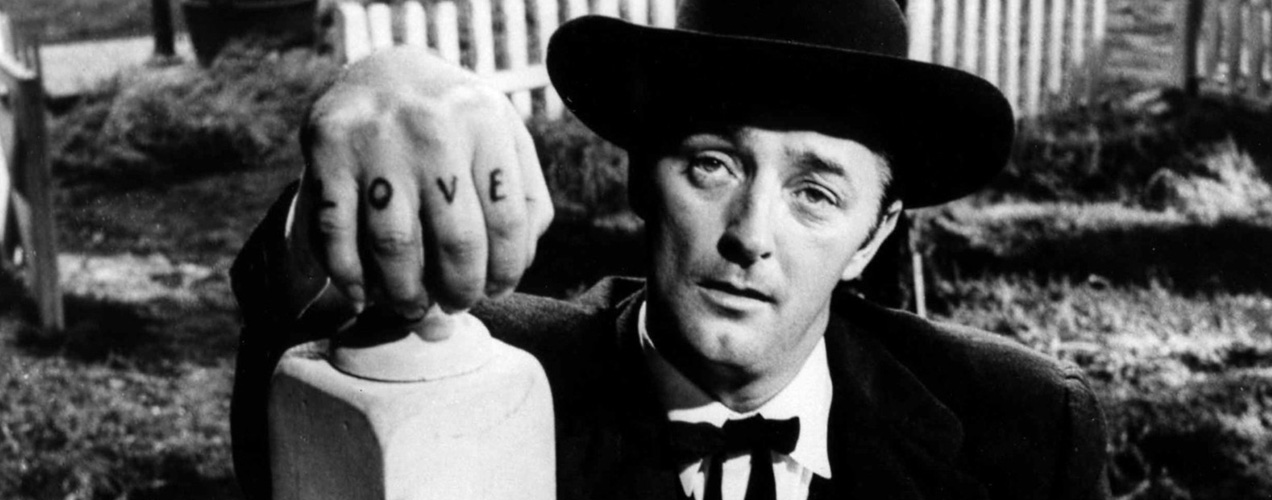
The Night of the Hunter
1955 / Charles Laughton > After Robert Mitchum’s turn as the dashing anti-hero in Out of the Past, I found it refreshing to see his portrayal of a so-called holy man with a batshit crazy mind. The man gives you the creeps in The Night of the Hunter, with his wild religious rhetoric and instantly suspicious demeanor. What tricks me is that I can’t figure out what Laughton was up to. The film’s hard to figure out because it’s not simply a good vs. bad story, as it has shades of a fable and a darkly Biblical undertone. But all that withstanding, everything simply falls apart at the end. Symbolically and fundamentally, it becomes a jumbled mess. Sure, it’s possible to justify everything that happens, but it just doesn’t feel acceptable to a rational mind. Either way, one thing is for sure: This has some of the finest cinematography I’ve ever seen in a black & white film. Stanley Cortez uses beautiful, stark angles and really captures the depth of what one can do without color.

The Girlfriend Experience
2009 / Steven Soderbergh > The big question everyone will be asking is, “Can Sasha Grey act?” Sad to say, the pornographic star’s crossover role has such a limited emotional palette that it’s hard to tell. Her character is the subdued type, quiet and reserved except for bursts of emotion inflicted at a loved one. And the story itself is Pretty Woman with a tinge of cynicism. Credit to Soderbergh for giving the girl a chance (as I’d love to see her do more work outside of the realm of the skin and saliva), and for fleshing up the sights of Lower Manhattan true to life. But from those basics, the film is a study of the world’s oldest profession in its modern setting without really bringing anything we didn’t already know. Were it a character piece, I could understand, but even that doesn’t seem to really fit into the details of the script. Even the stints at social commentary via the clientele’s morning shoptalk is too lackadaisical to derive some level of interest.
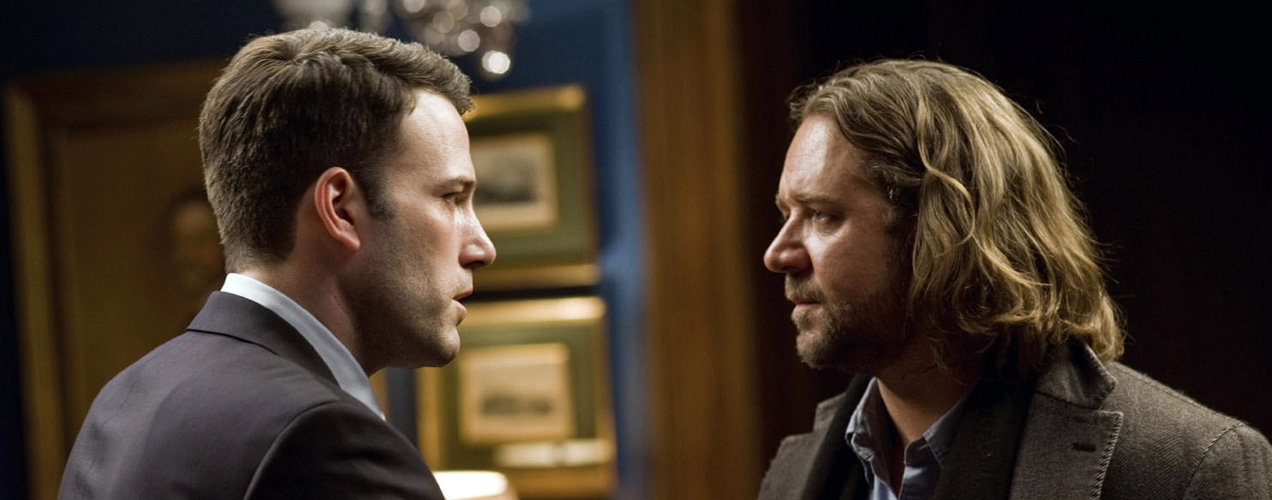
State of Play
2009 / Kevin Macdonald > Frankly, there was no way this film could make me happy. The original 2003 BBC miniseries on which this is based is one of my single favorite pieces of television ever. It’s clever, thrilling and intelligent. John Simm in the lead is downright brilliant and the rest of the cast is near perfect. But in the process of cramming six fantastic hours into two for the global mainstream audience, quite a bit of detail and charm has been lost. While it remains a rather well-made film, the last third seems rushed and increasingly trite. The pacing of the movie kills the appreciation of the character motivations and starts insulting the viewer’s intelligence. Incidentally, the same storyline in the miniseries successfully orchestrates these emotions. Thus, I can’t stress enough that everyone should give the original a chance. Avoid a couple of clunkers this summer and spent those extra four hours diving into this riveting Brit drama and come out much more satisfied.
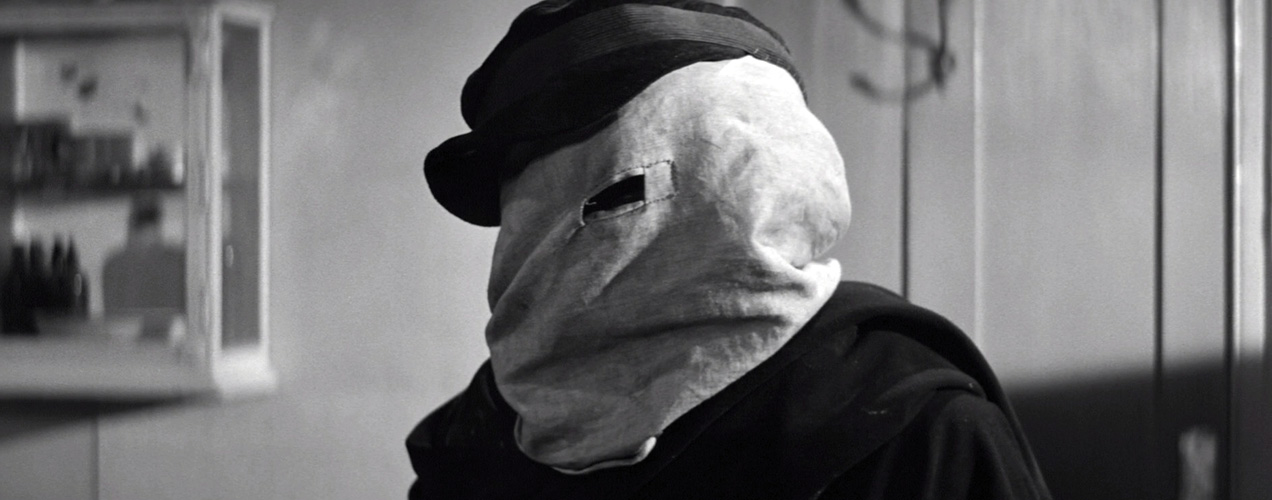
The Elephant Man
1980 / David Lynch > When dealing with subject of such social sensitivity as Joseph Merrick, the so-called “Elephant Man,” directors are put in a very tight spot: They can either go balls-out with sympathetic adoration, or stay back and reduce the emotions in order to portray the objective viewpoint. Lynch, as confident and masterful has he thinks he is, tries to combine the two into proving a fuller experience. It’s unfortunate, then, that I personally just didn’t find much satisfaction in his overall presentation. Save for the famous “I am not an animal!” cry, I found The Elephant Man mostly uninteresting, if well-made. The question we have to ask as viewers is fairly simple: Was Merrick actually an interesting person? Is he worthy of being made a film about? Or are we falling into the same trap as circus goers and simply praising a film because it involves a deformed man of possible intelligence, and we simply cannot be caught failing to extend our hearts to him?
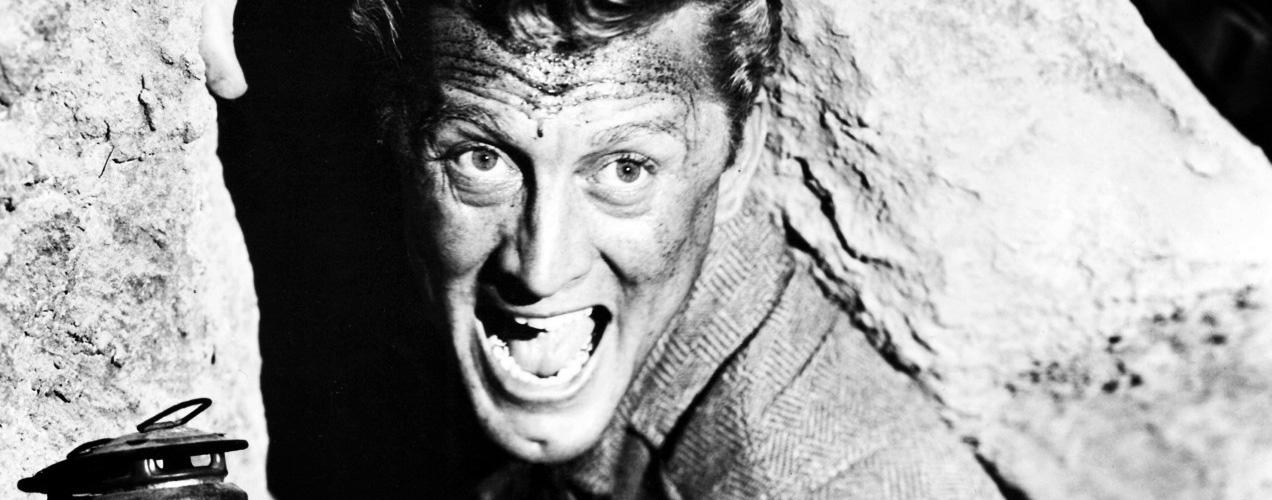
Ace in the Hole
1951 / Billy Wilder > Now, Billy, you’ve failed me here. This story of exploitation may have gotten a rise out of people back in the day, but it’s aged faster than anything else I’ve ever seen by you. Even Kirk Douglas seems like he’s too busy acting to actually play his part. Something about how simple you make everything seem in Ace in the Hole just doesn’t feel right. The morality is too clear cut, and if I really wanted to doubt my conscience, maybe I’d go back to watch the layered Sweet Smell of Success instead! Or am I just feeling backlash to the sudden sprouting of liberal guilt in our current media environment?

